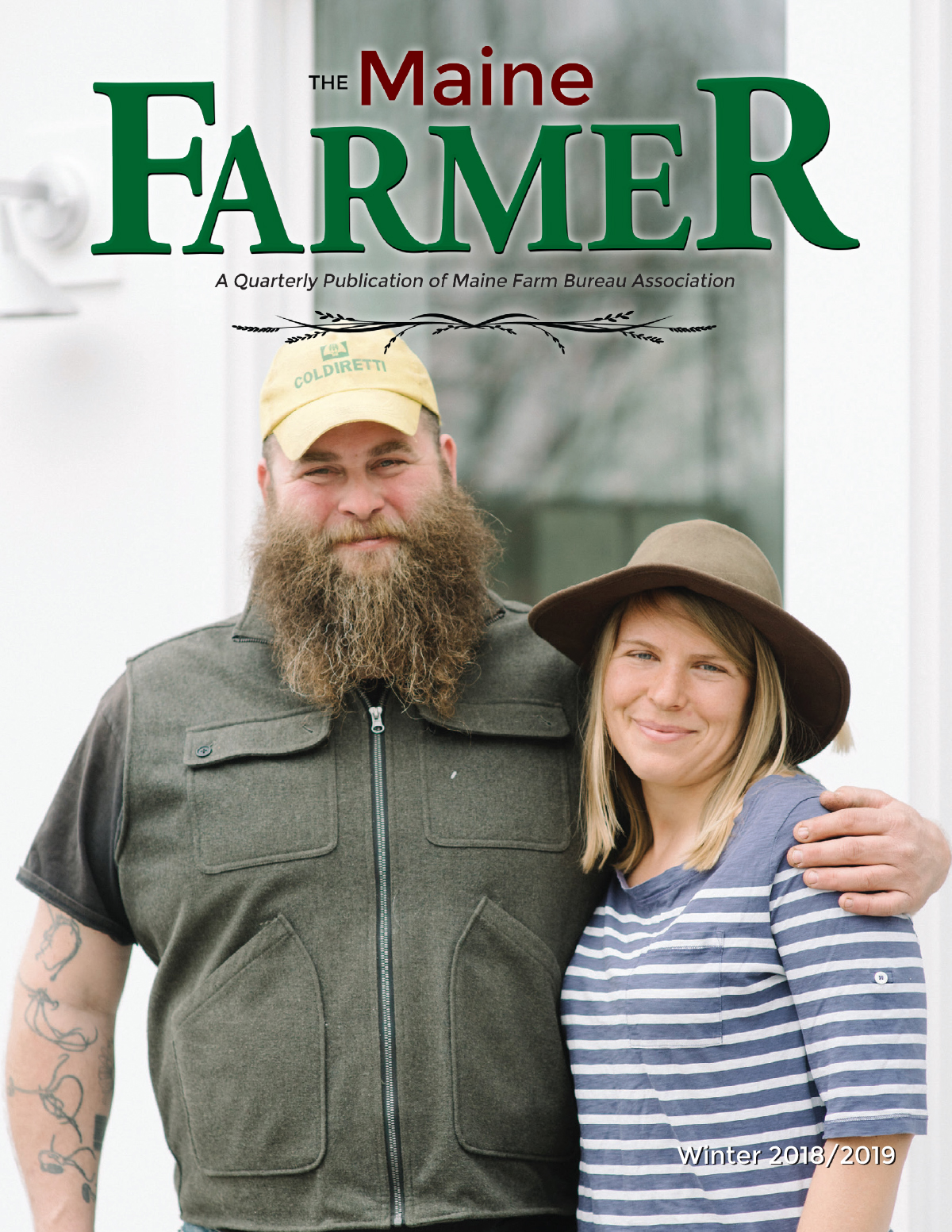Mar 17, 2020
Maine Farm Bureau President: Why I chose organic farming

Reprinted with permission from the Maine Farm Bureau.
As a new state Farm Bureau president, I’ve been asked about my personal connection to farming hundreds of times by Farm Bureau members from all over the country. When I explain that I run an organic produce farm on just 17 acres, I’m often met with a look of surprise. I take no offense – my home state’s agricultural history was built on chicken, potatoes, apples, blueberries and dairy. Many of my colleagues were perhaps expecting that I come from a multi-generational family farm producing one of these crops. I can’t blame them for making an educated guess.
I chose Maine because it’s a place where so many time-honored agricultural histories are interwoven. But the agricultural field has been broadening for over half a century, and while some see the new models and practices in agriculture as a sign of cultural division, I see a growing family tree of shared history.
I chose organic farming because, as a first-generation farmer, it allowed me to start my farm business on a small scale with simple infrastructure and a low-impact approach to soil and plant health.
Organic practices may be different but we have so much in common with our fellow American farmers.
When I began my career as an organic farmer 23 years ago, the market was shaky at best, certification was only a couple sheets of paper and organic supplies were a challenge to procure and very expensive. But organic food soon gained a foothold, and I soon found myself selling out at farmers’ markets and supplying notable chefs in Portland. Demand grew, as did the number of organic farms populating Maine’s landscape. As competition increased, so did regulations, but also the resources available to organic farmers.
I’ve seen a lot of trends come and go within organic farming, but a few things are certain.
Organic produce is in-demand, profitable and is proving itself on many different scales. My wife and I have found our place in organic farming serving wholesale markets in Boston and Maine, with limited specialty sales to restaurants. We’ve watched the demand for local, organic produce shift from predominantly farmers’ markets and independent natural food stores to large grocery chains, fast-casual restaurants and institutions.
Another certainty is that it’s human nature to find kinship with those whom you relate to the most. Farming is no exception.
Nearly every farmer I’ve met loves a good session of shop talk with another farmer who understands the specificities and challenges of their particular crop. This kinship leads to a community of friends and associates who share a common bond. In time this leads to organizations, boards and associations that help these farmers protect their markets and influence consumer opinion. This focus results in agricultural networks that operate independently of each other, and often feel insular. At times it seems that an organic vegetable farmer in Maine would feel more brotherhood with an organic vegetable farmer in California than with the conventional dairy farmer down the road.
So how do we unify in a time when methods of agricultural production are becoming more diverse and more specialized?
Farms in my home state are more interconnected than many of us realize, and if we lose one industry it has a ripple effect through the state. If it weren’t for our dairy farmers and poultry operations, vegetable producers would lose their local source of affordable manure. If not for our hay and straw operations, a whole host of livestock producers and small farmers lose feed, bedding and mulch. If our state stops maintaining its wild blueberry barrens, we lose an attraction unlike anything else in the world; a spectacular glacial landscape that mesmerizes countless tourists each season.
There are seemingly endless ways to fail in agriculture these days, but there are also endless ways to succeed.
Organic practices may be different but we have so much in common with our fellow American farmers. We all face land-use issues, market fluctuations, labor issues and similar challenges.
Organic farmers are taking advantage of high visibility in the consumer space right now, and are positioned to be powerful advocates for American agriculture on a larger scale. I joined the Maine Farm Bureau to be with fellow farmers and have our voices heard, to keep farming as a part of the American landscape and be able to shape its future. I encourage all farmers to join Farm Bureau, no matter how you farm or how you are connected to farming. Not a farmer? In many states, non-farmers are welcomed as associate members of Farm Bureau. It’s a wonderful opportunity for kinship, shared learning and powerful advocacy.






